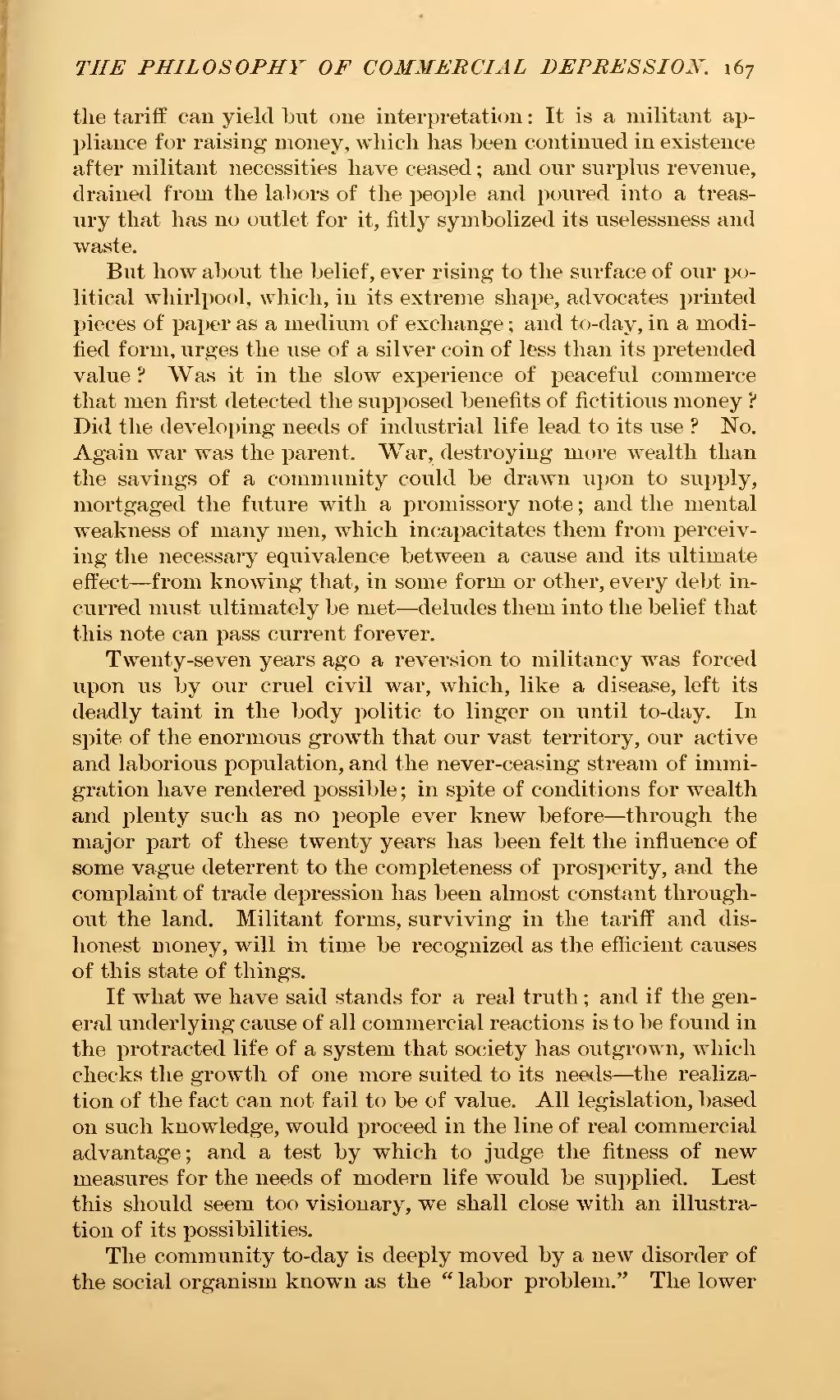the tariff can yield but one interpretation: It is a militant appliance for raising money, which has been continued in existence after militant necessities have ceased; and our surplus revenue, drained from the labors of the people and poured into a treasury that has no outlet for it, fitly symbolized its uselessness and waste.
But how about the belief, ever rising to the surface of our political whirlpool, which, in its extreme shape, advocates printed pieces of paper as a medium of exchange; and to-day, in a modified form, urges the use of a silver coin of less than its pretended value? Was it in the slow experience of peaceful commerce that men first detected the supposed benefits of fictitious money? Did the developing needs of industrial life lead to its use? No. Again war was the parent. War, destroying more wealth than the savings of a community could be drawn upon to supply, mortgaged the future with a promissory note; and the mental weakness of many men, which incapacitates them from perceiving the necessary equivalence between a cause and its ultimate effect—from knowing that, in some form or other, every debt incurred must ultimately be met—deludes them into the belief that this note can pass current forever.
Twenty-seven years ago a reversion to militancy was forced upon us by our cruel civil war, which, like a disease, left its deadly taint in the body politic to linger on until to-day. In spite of the enormous growth that our vast territory, our active and laborious population, and the never-ceasing stream of immigration have rendered possible; in spite of conditions for wealth and plenty such as no people ever knew before—through the major part of these twenty years has been felt the influence of some vague deterrent to the completeness of prosperity, and the complaint of trade depression has been almost constant throughout the land. Militant forms, surviving in the tariff and dishonest money, will in time be recognized as the efficient causes of this state of things.
If what we have said stands for a real truth; and if the general underlying cause of all commercial reactions is to be found in the protracted life of a system that society has outgrown, which checks the growth of one more suited to its needs—the realization of the fact can not fail to be of value. All legislation, based on such knowledge, would proceed in the line of real commercial advantage; and a test by which to judge the fitness of new measures for the needs of modern life would be supplied. Lest this should seem too visionary, we shall close with an illustration of its possibilities.
The community to-day is deeply moved by a new disorder of the social organism known as the "labor problem." The lower

